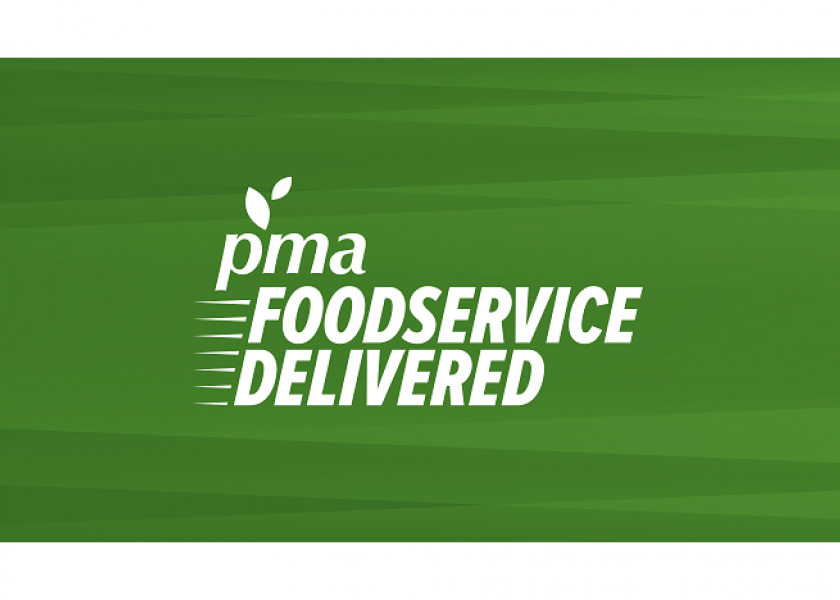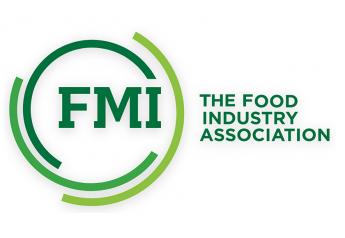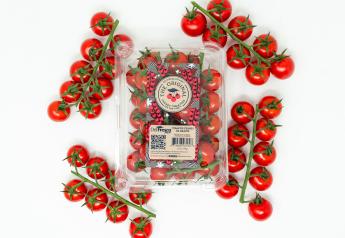Food Delivery apps deliver, but at what cost?

The pros and cons of restaurant food delivery apps came under the microscope in a Produce Marketing Association Foodservice: Delivered session.
Taxing restaurant profitability, some food delivery apps have a “shaky at best” reputation in recent years and their standing has declined during the pandemic, said Sabrina Medora, moderator of the July 21 panel and founder of the multimedia platform Un-Plated. Un-Plated offers insight and education about the restaurant industry. Medora said food delivery services like Grubhub, DoorDash and Postmates can charge restaurants between 20% to 35% commission per order, in addition to the monthly fee for the service. Customers typically pay a delivery fee, a driver tip and sales tax.
“So that’s a lot of fees not just for customers, but also for their restaurants,” she said. “How is this sustainable for restaurants? Is it sustainable for restaurants?”
Best practices
Panelist Laura Hayes, food editor and Young & Hungry columnist at Washington (D.C.) City Paper, said restaurants may endure break-even costs in order to find marketing opportunities through delivery services.
“There is peer pressure that you need to be on these apps in order to please your customers, because they go on there and they’re looking for you, they want you to be on there, and so everyone kind of feels pressure to join,” Hayes said.
Hayes said some local jurisdictions have asked delivery services to lower commission fees they charge restaurants during the COVID-19 pandemic. For example, Washington D.C., mandated a maximum commission of 15% for delivery services during the pandemic, Hayes said.
Delivery services also have been pressed to ensure the safety of their drivers during the pandemic but the record is spotty, Hayes said.
“Most of these people are independent contractors; they have no employee benefits, they largely don’t receive very much training, and they really have to hustle to kind of make any semblance of a living,” she said. “It won’t surprise you that during COVID-19, they haven’t had the access to things that they’ve been promised.”
Success story
Panelist David Cabello, founder of Black and Mobile delivery service, said his service charges restaurants a commission of 20% and allows restaurants to raise their prices to soften the blow to their margins. The service exclusively delivers food from black restaurants to customers in Philadelphia, Detroit and Atlanta.
“Ultimately the customer does pay a little more but (the service) help businesses stay alive,” he said. “Customers usually support me because they want to support black businesses.”
Panelist Nick Kokonas, co-owner and co-founder of The Alinea Group, a restaurant group, said the company has offered to-go meals since mid-March.
“We went from doing absolutely no carry-out business to over a million dollars a day in a week when we launched it in mid March,” he said.
The meals also are offered for delivery through third-party apps for a negotiated flat fee.
“You know there is a whole new kind of elevated carry-out that has been created here,” he said.
The recent limited re-opening of restaurants has resulted in a drop in the use of food delivery apps over the past six weeks and expanded dining in open-air patios and, on a limited basis in dining rooms, Hayes said.
“Unfortunately, cities are considering re-locking in California, and as they get rid of the indoor dining, carry-out becomes more important again,” he said.
Kokonas said it is important for restaurants to plan for beyond the pandemic. That means investing in e-mail marketing to customers and leveraging social media to reengage customers, he said.
Better communication is needed between delivery services and restaurants, panelists said.
“I will put the onus on the restaurant owners; support the businesses that are working with you,” Kokonas said.
Find delivery services that can deliver an “elevated experience” and emotional connection to customers, he said.
Medora urged restaurants to be smart about the relationships they build with delivery services.
“Be smart about where your money is being spent, and be firm, and try and make it a good experience for yourself and your customers,” she said.
Related articles
What restaurant operators see for the future of the foodservice business
Diversity happens but inclusion takes intention







